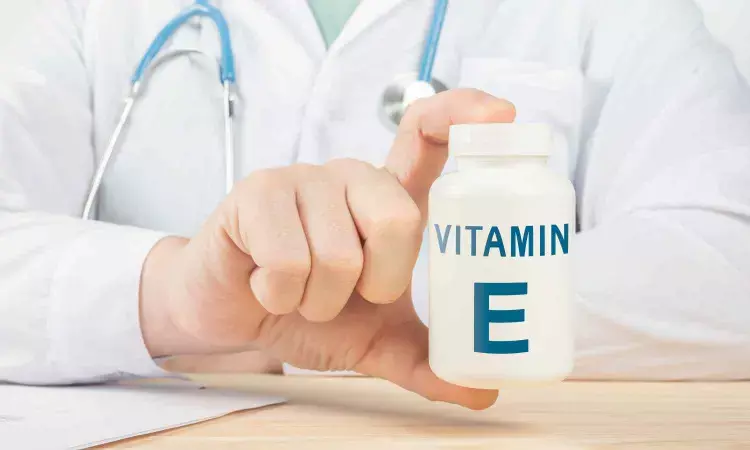- Home
- Medical news & Guidelines
- Anesthesiology
- Cardiology and CTVS
- Critical Care
- Dentistry
- Dermatology
- Diabetes and Endocrinology
- ENT
- Gastroenterology
- Medicine
- Nephrology
- Neurology
- Obstretics-Gynaecology
- Oncology
- Ophthalmology
- Orthopaedics
- Pediatrics-Neonatology
- Psychiatry
- Pulmonology
- Radiology
- Surgery
- Urology
- Laboratory Medicine
- Diet
- Nursing
- Paramedical
- Physiotherapy
- Health news
- Fact Check
- Bone Health Fact Check
- Brain Health Fact Check
- Cancer Related Fact Check
- Child Care Fact Check
- Dental and oral health fact check
- Diabetes and metabolic health fact check
- Diet and Nutrition Fact Check
- Eye and ENT Care Fact Check
- Fitness fact check
- Gut health fact check
- Heart health fact check
- Kidney health fact check
- Medical education fact check
- Men's health fact check
- Respiratory fact check
- Skin and hair care fact check
- Vaccine and Immunization fact check
- Women's health fact check
- AYUSH
- State News
- Andaman and Nicobar Islands
- Andhra Pradesh
- Arunachal Pradesh
- Assam
- Bihar
- Chandigarh
- Chattisgarh
- Dadra and Nagar Haveli
- Daman and Diu
- Delhi
- Goa
- Gujarat
- Haryana
- Himachal Pradesh
- Jammu & Kashmir
- Jharkhand
- Karnataka
- Kerala
- Ladakh
- Lakshadweep
- Madhya Pradesh
- Maharashtra
- Manipur
- Meghalaya
- Mizoram
- Nagaland
- Odisha
- Puducherry
- Punjab
- Rajasthan
- Sikkim
- Tamil Nadu
- Telangana
- Tripura
- Uttar Pradesh
- Uttrakhand
- West Bengal
- Medical Education
- Industry
Vitamin E Supplementation Enhances Female Hormonal Balance and Fertility Potential: Study

A recent clinical study published in the journal of Polski Merkuriusz Lekarski revealed that daily vitamin E supplementation (100 mg) positively influenced female hormonal indicators, particularly estradiol and luteinizing hormone (LH), potentially improving infertility treatment outcomes. Early-cycle supplementation showed greater increases in these hormones when compared with mid-cycle supplementation, indicating enhanced hormonal activity.
The study enrolled 40 women aged between 18 and 35 years, all receiving infertility treatment. The participants were divided into 2 groups, where the Group A received vitamin E starting on the 4th day of their menstrual cycle, representing early-cycle supplementation and Group B received taking vitamin E during the middle of the cycle, around the expected time of ovulation. Blood samples were analyzed using an immunoassay system (Cobas E 411) to determine the hormone levels before and after supplementation.
The results demonstrated a clear increase in serum vitamin E levels in both groups following supplementation, confirming that even short-term use significantly elevates antioxidant levels in the body. Also, the study found a significant rise in estradiol and LH concentrations after treatment when compared with baseline values. These two hormones play a critical role in ovulation and fertility regulation.
Estradiol is essential for follicle development and endometrial preparation for implantation. Its elevation indicates improved ovarian activity. Luteinizing hormone, meanwhile, is responsible for triggering ovulation and its increase suggests a higher likelihood of successful egg release.
Also, early-cycle supplementation (Group A) showed better hormonal responses than mid-cycle supplementation (Group B). Statistical analysis revealed that estradiol levels were significantly higher in Group A (P=0.04), while luteinizing hormone levels also showed a notable rise (P=0.02). This implies that initiating vitamin E earlier in the menstrual cycle enhances the body’s natural hormonal rhythm, potentially improving fertility outcomes.
While follicle-stimulating hormone (FSH) and prolactin levels showed modest changes, the marked improvements in estradiol and LH are particularly significant. This research explained that vitamin E, being a potent antioxidant, may help stabilize cellular membranes and reduce oxidative stress in ovarian tissues, promoting better hormonal signaling and follicular health.
Overall, the findings suggest that short-term vitamin E supplementation at 100 mg/day positively influences female reproductive hormones, especially when started early in the menstrual cycle. Further studies on larger populations are imperative to confirm the long-term benefits and potential clinical applications of this vitamin-based approach.
Source:
Assi, M. A., Shamran, S. G., Mahdi, K. A., & Al-Fahham, A. A. (2025). Effect of short duration vitamin E supplementation on some reproductive hormones in infertile women. Polski Merkuriusz Lekarski: Organ Polskiego Towarzystwa Lekarskiego, 53(5), 587–591. https://doi.org/10.36740/Merkur202505101
Neuroscience Masters graduate
Jacinthlyn Sylvia, a Neuroscience Master's graduate from Chennai has worked extensively in deciphering the neurobiology of cognition and motor control in aging. She also has spread-out exposure to Neurosurgery from her Bachelor’s. She is currently involved in active Neuro-Oncology research. She is an upcoming neuroscientist with a fiery passion for writing. Her news cover at Medical Dialogues feature recent discoveries and updates from the healthcare and biomedical research fields. She can be reached at editorial@medicaldialogues.in
Dr Kamal Kant Kohli-MBBS, DTCD- a chest specialist with more than 30 years of practice and a flair for writing clinical articles, Dr Kamal Kant Kohli joined Medical Dialogues as a Chief Editor of Medical News. Besides writing articles, as an editor, he proofreads and verifies all the medical content published on Medical Dialogues including those coming from journals, studies,medical conferences,guidelines etc. Email: drkohli@medicaldialogues.in. Contact no. 011-43720751


